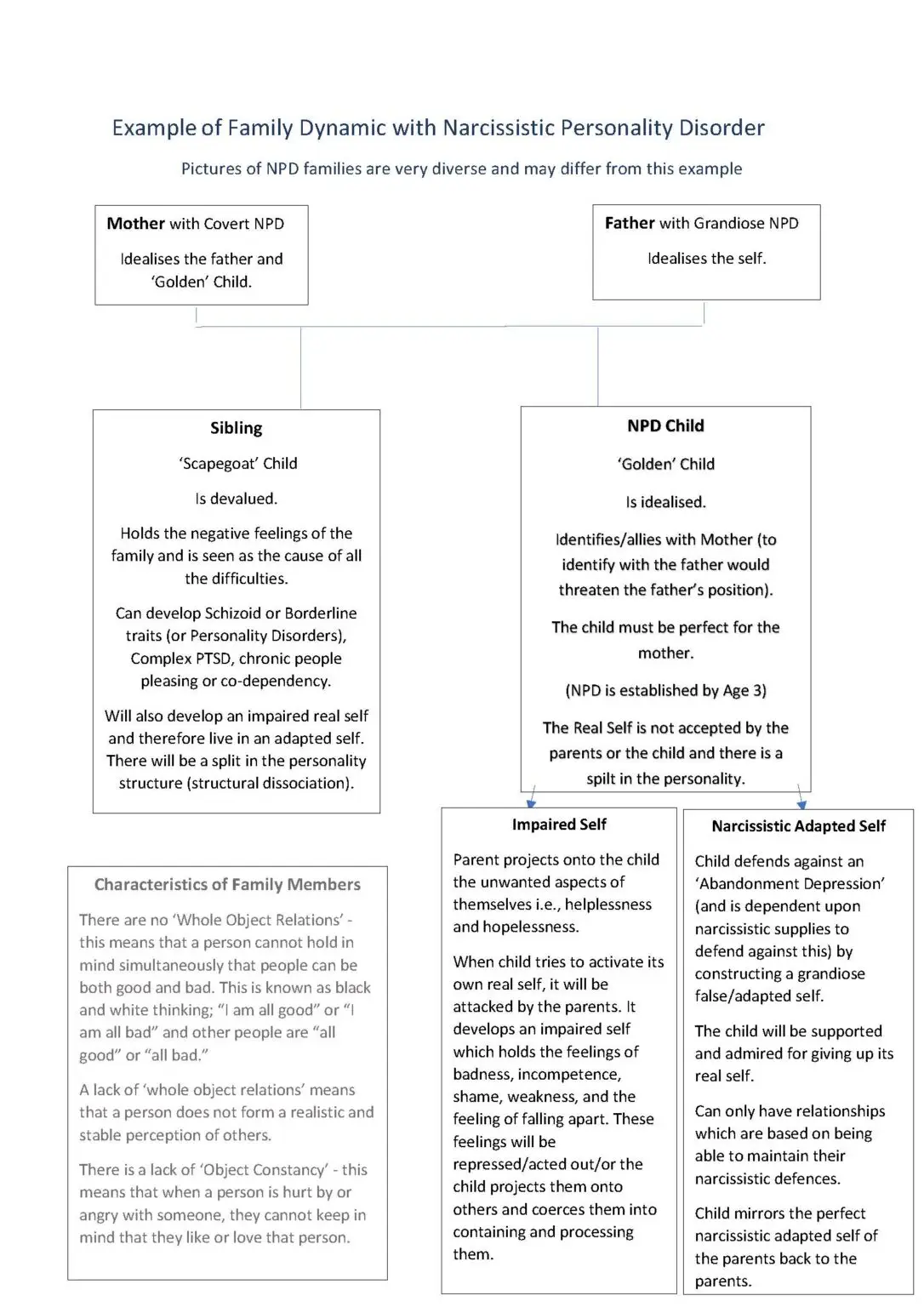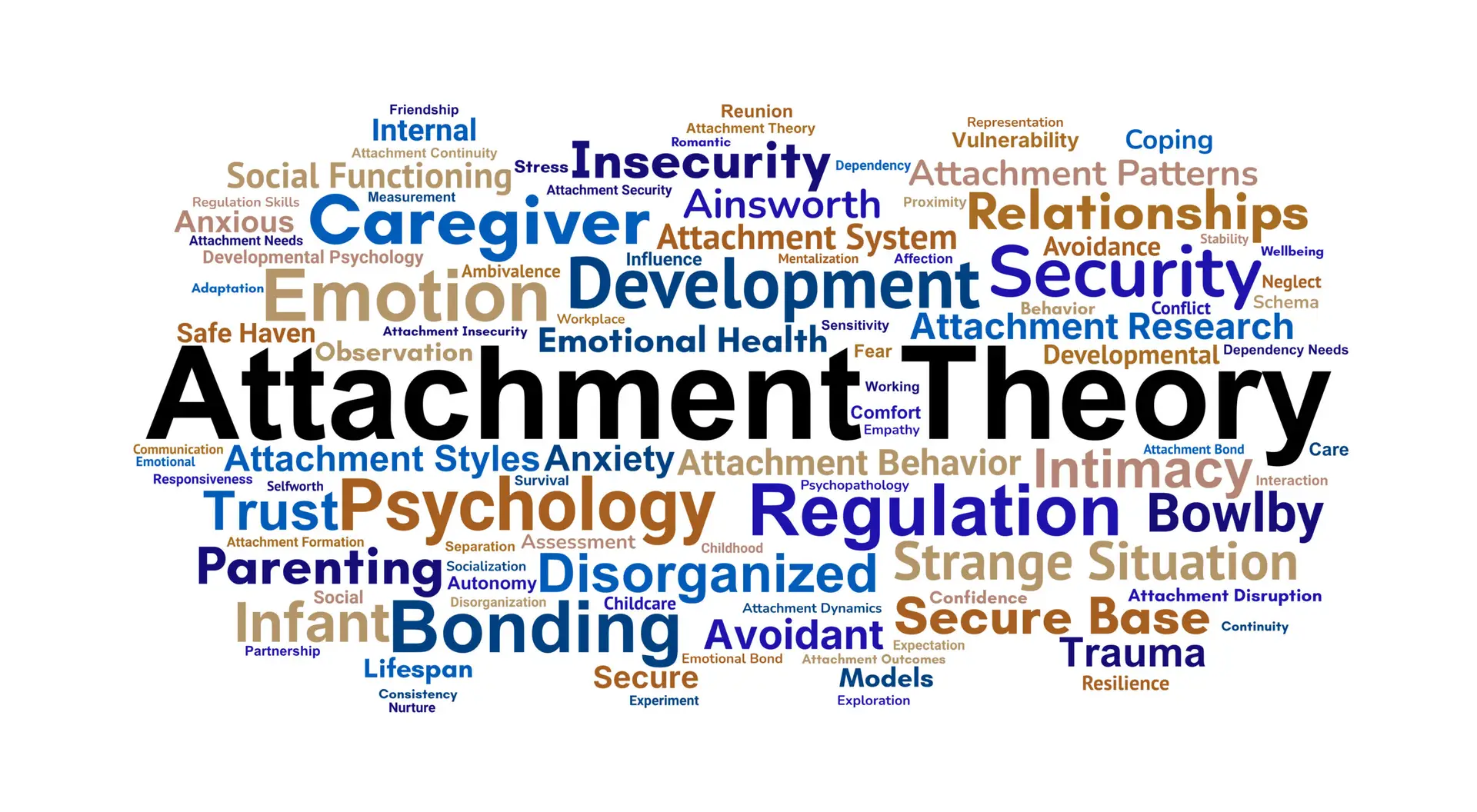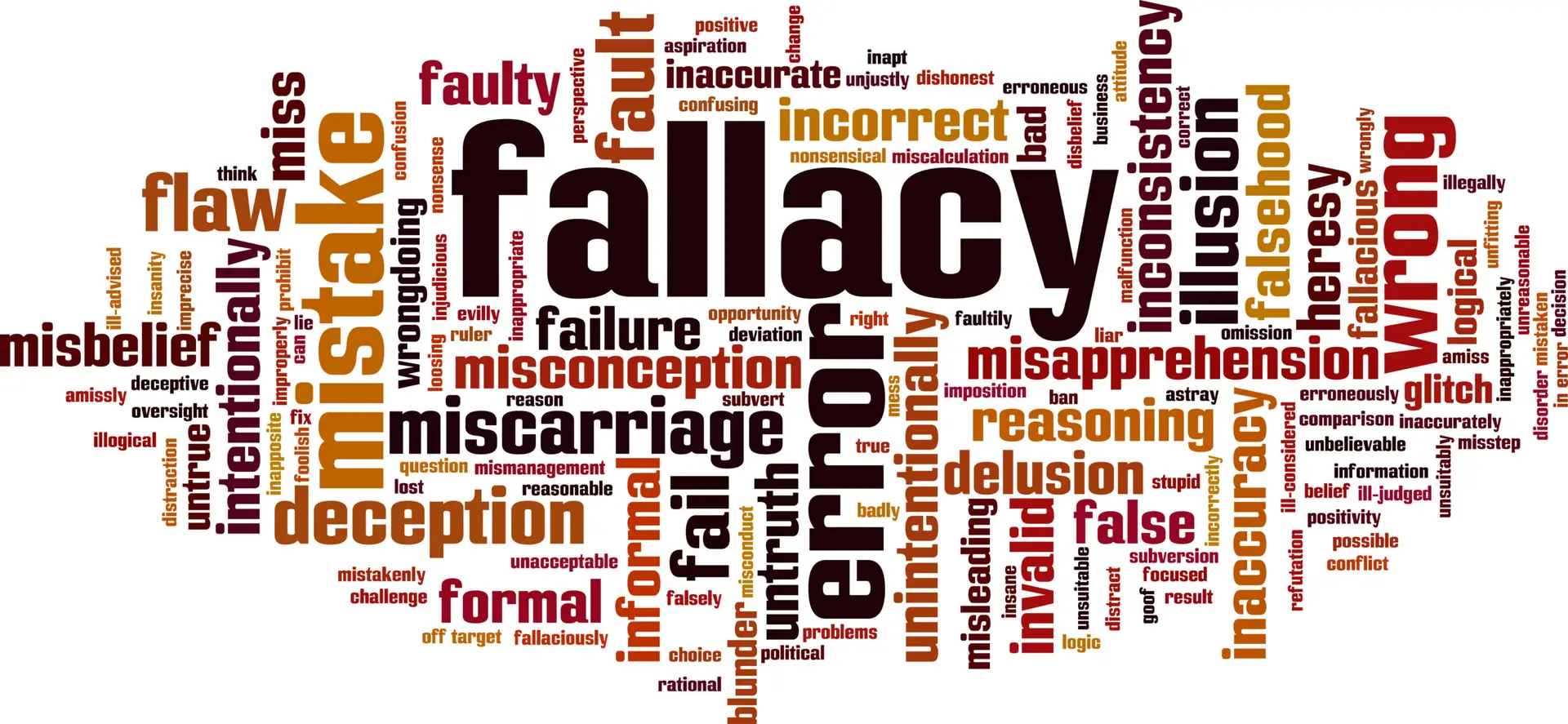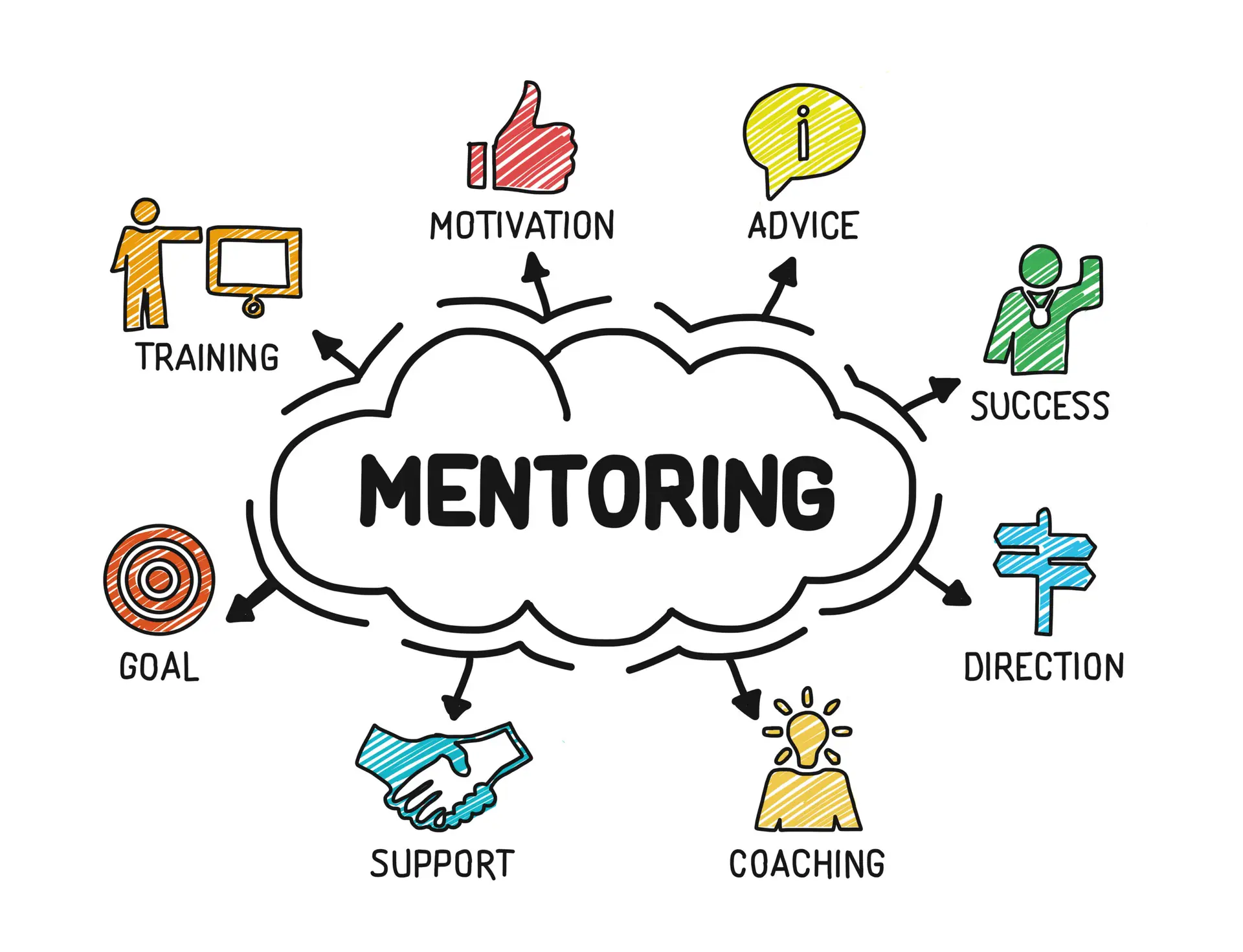A person with Narcissistic Personality Disorder will generally have come from a background where there was a parent with NPD (there are differing theories as to the cause of NPD which can be seen here). NPD families are very hierarchical and the person with the most power will be at the centre. The dynamic of the family will function in a cult-like way with the head of the family dictating the rules and reality to the rest of the family members. Dissent is forbidden.
Here is an example of the dynamics within a narcissistic family.

NPD Relationships are Diverse
Those with narcissistic personality disorder are often from maladapted families where at least one of the parents has NPD. In the example above, we see that the father is a grandiose narcissist and the mother is a covert narcissist. It demonstrates the intergenerational patterns of NPD.
People with NPD cannot have healthy close relationships as this will interfere with their narcissistic defences. Therefore, they will often choose partners who are unavailable such as those who are married or live a long distance away. They may be workaholics to avoid the home. Alternatively, they may have no or few partners or have a partner they devalue but are apparently devoted to or they may have a partner that devalues them. They are attracted to attributes in another that will give them narcissistic supply such as beauty, wealth and power. If these qualities disappear then the feelings for that person will also disappear. They may go into narcissistic rages when their entitled needs are not met.
Partners of narcissists may have Narcissistic, Borderline, Schizoid or Dependent Personality Disorder or other. They are likely to have also had a narcissistic parent and will also feel comfortable in a relationship where they can keep the defences they have built in childhood intact and this means their partner will be someone similar to their parents.
Self-Activation = Feelings of Abandonment Triggered = Defence
The issue that many people have that have come from dysfunctional backgrounds is rooted in the fact they were punished/abandoned/rejected when they tried to be themselves and ‘self-actualise’ at an early age. The real self became buried and largely hidden from consciousness. Attempting to ‘self-actualise’ triggers buried feelings of anger, rejection, weakness, self-hatred, shame, guilt or a sense of the self falling apart and this in turn triggers the person to go into defence. This means they use their preferred go to method of self-soothing – whether this be addictive behaviours or other type of distraction/defence mechanism. Defences and the adapted self are a refuge from the pain of the rejected real self.
A child of a narcissist will avoid triggering the buried feelings by avoiding asserting themselves or expressing their wishes and therefore they do not activate their unique personality. The rejection of their real self by their mother or father is intolerable and painful. The price that had to be paid as a child for feeling safer was their submission to the narcissistic parent’s will.
Submissive defences are common but there can also be rebellious reactions or extremely frustrated reactions, more often in older children.
The Golden Child and Scapegoat Child Dynamic
The role in which the narcissistic parent places the child may also be influential. Narcissistic parents will often idealise one child and devalue another. These roles are known as ‘golden child’ and ‘scapegoat’. Children will be played off against each other – this is known as triangulation and is essentially a divide and rule tactic. Children are encouraged to dislike each other and communication is largely controlled by the parent.
The idealised ‘golden’ child will often go on to become a person with NPD themselves but not always – the role of golden child is forced onto a child but if they do not have a certain aspect to their character naturally, they will not become a person with NPD. The devalued ‘scapegoated’ child may become someone with Schizoid, Dependent or Borderline personality disorder or they may develop Complex PTSD, anxiety or a panic disorder among other outcomes.
The Lost Child
Another role in an abusive family is that of the lost child. They are the child that is invisible/ignored and/or keeps out of the way as much as possible as a safety behaviour. They may be seen as shy, quiet and a loner. They do not draw much interest from the narcissistic parent.
These children are abused and emotionally neglected and will most likely go on to develop similar coping behaviours to the scapegoat child.
Changing Roles
Sometimes the roles a child is assigned can change and an example of this is: if there are 2 children and the oldest is the scapegoat and the youngest is the golden child, when the oldest child leaves home the youngest may then be placed into the role of the scapegoat.
Single children (only children with no siblings) speak of never knowing if they would be in the role of being idealised or devalued – they would be placed into one role or another at different times by the narcissistic parent.
Golden, scapegoated and lost children are not accepted as themselves by the NPD parent and the children will develop a complex set of defences.
Intergenerational Trauma
Trauma is intergenerational and in a family where there is NPD and other personality disorders, all of the family members in all generations will be affected in some way. Many people may be unaware of their patterns of behaviour and the legacy they are passing on. People may vow to never be like their narcissistic parent/s but unless that inner work is done (developing self-awareness and changing behaviours) it is usually inevitable that those patterns/wounds will be passed on to the next generation.
The cycle will continue until it can be broken by a person who has the will and determination to change the patterns of behaviour. This is not easy and takes a lot of work but the rewards are huge.
Sources:
James F. Masterson MD
Elinor Greenberg PhD:








This Post Has 3 Comments
This is literally my family. To a tee. What on earth do I do now?
Hi Anon,
You might like to have a look at the following article which may be of some help:
https://childrenofnarcissists.org.uk/healing-from-narcissistic-abuse/
This is also my family to a tee. How do I do the work to fix myself?